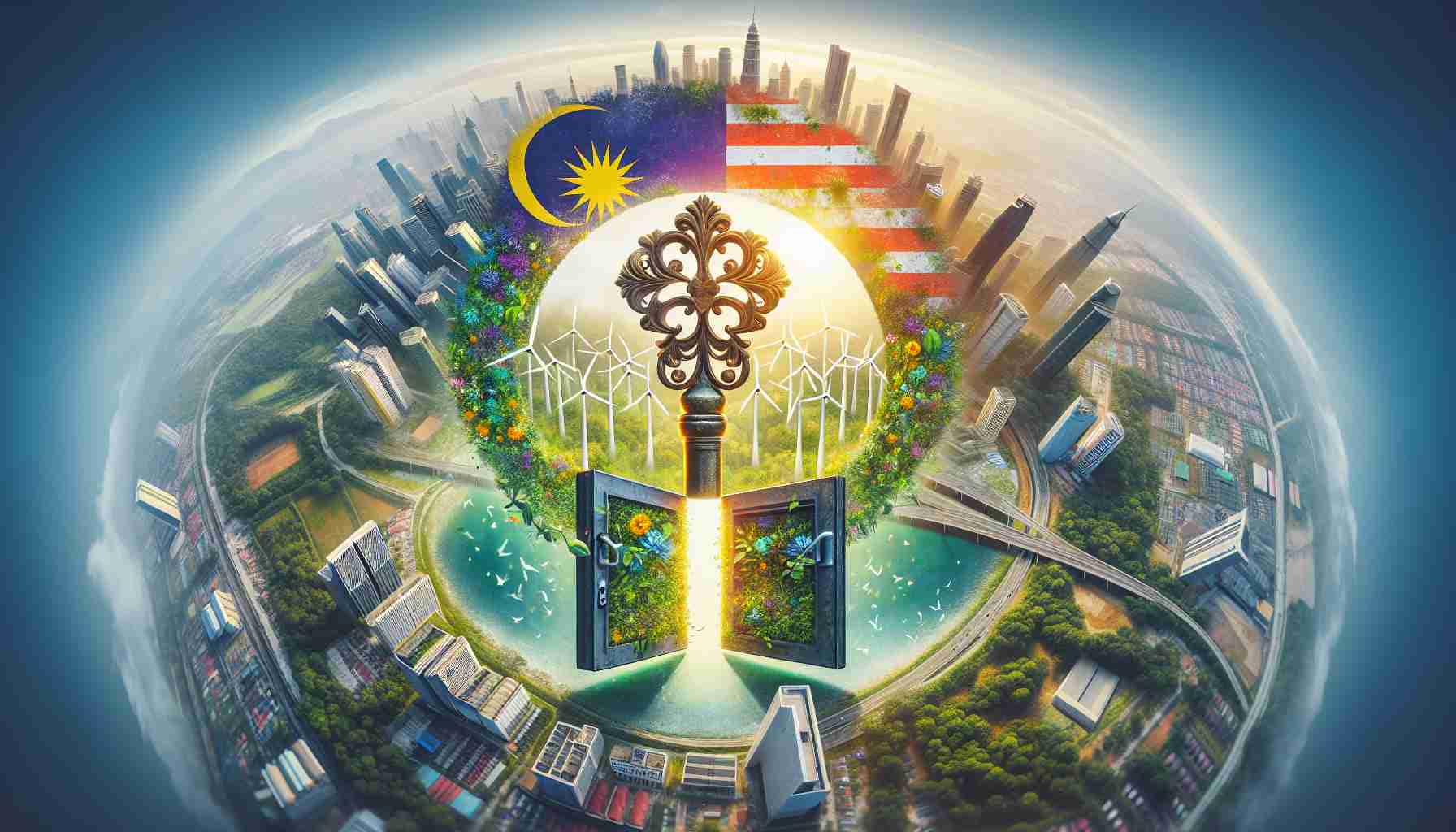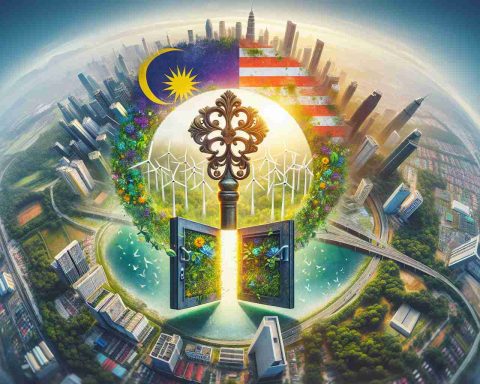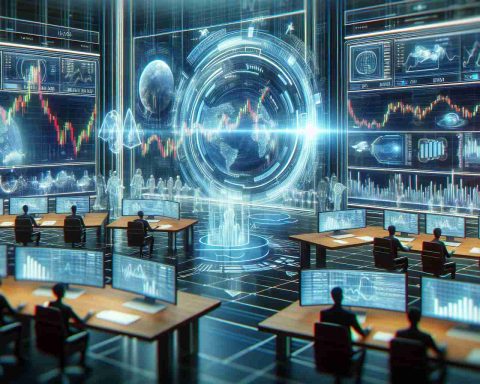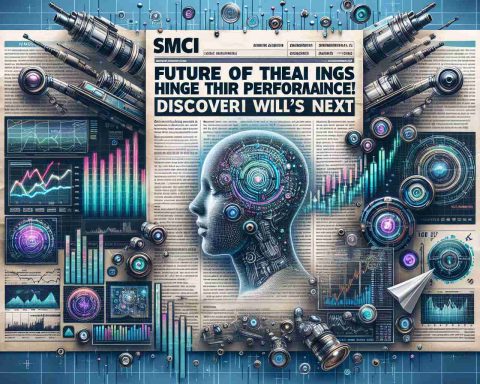Malaysia is actively seeking investments from United Arab Emirates (UAE) companies in its burgeoning renewable energy sector. Prime Minister Datuk Seri Anwar Ibrahim made this announcement during his recent three-day diplomatic trip to the UAE. In discussions with Masdar, a prominent state-owned renewable energy firm, Anwar emphasized the government’s commitment to streamline investment processes for UAE firms, particularly in data centers and green energy projects.
Specific initiatives under consideration include joint ventures with local enterprises, focusing on critical sectors such as infrastructure development and battery storage solutions. This partnership aims to enhance Malaysia’s energy grid and align with the New Industrial Master Plan 2030 and Madani Economy objectives.
Furthermore, Anwar’s discussions with the Abu Dhabi Investment Authority (ADIA) revolved around strategic projects within the Johor-Singapore Special Economic Zone. He highlighted the significance of ADIA’s potential role in the reorganization or privatization of Malaysia Airport Holdings Bhd, leveraging its expertise from world-class airports.
Additionally, Anwar explored opportunities with Mubadala, particularly in liquefied natural gas production and associated infrastructure development. The discussions also touched on sustainability projects such as blue hydrogen and carbon capture technologies.
Overall, the visit reaffirmed Malaysia’s commitment to bolstering bilateral relations with the UAE, setting the stage for mutual growth and collaboration in various sectors.
Malaysia’s Renewable Energy Ventures: A New Era of Collaboration with the UAE
Malaysia is making bold strides in its renewable energy sector by actively seeking investments from companies in the United Arab Emirates (UAE). This initiative, highlighted by Prime Minister Datuk Seri Anwar Ibrahim during his diplomatic visit to the UAE, underscores a significant partnership aimed at transforming energy landscapes not only in Malaysia but also in the broader context of global sustainability efforts.
The discussions surrounding potential investments from UAE firms, particularly in renewable energy, data centers, and infrastructure developments, are poised to have a multifaceted impact on the environment, economy, and humanity. By prioritizing green energy initiatives, Malaysia is aligning itself with global movements towards sustainability and climate change mitigation.
Environmental Impact
Fostering renewable energy projects can greatly reduce Malaysia’s carbon footprint and dependence on fossil fuels. Collaborations with companies like Masdar can accelerate the deployment of solar power, wind energy, and energy-efficient technologies. These advancements contribute to a cleaner environment, combatting air pollution and diminishing the adverse effects of climate change. Innovations in battery storage and carbon capture technologies, as mentioned in discussions with companies like Mubadala, further enhance Malaysia’s ability to utilize clean energy efficiently and responsibly.
Humanity and Societal Development
The shift towards renewable energy not only benefits the environment but also has profound implications for humanity. As Malaysia develops its renewable energy infrastructure, it opens up job opportunities in emerging sectors, fostering technological advancements and skill development. This transition is essential for empowering communities, particularly in rural areas where access to sustainable energy can spur economic growth and improve the quality of life.
Economic Growth and Foreign Investment
The Malaysian government’s commitment to streamline processes for foreign investments, particularly from UAE companies, demonstrates a strategic move toward enhancing its economic landscape. Collaborations in critical sectors can lead to increased foreign financial inflow, stimulating local economies and infrastructure development. By setting the stage for joint ventures, Malaysia positions itself as an attractive destination for investment in the green economy, which is expected to grow exponentially in the coming years. The synergy between Malaysia’s resources and the UAE’s investment capabilities could set a benchmark for cross-border collaborations in sustainability.
Global Connections and Future of Humanity
As the world increasingly faces the ramifications of climate change, partnerships like those between Malaysia and the UAE are pivotal. They symbolize a global effort to transition to sustainable practices and invest in renewable energy solutions essential for humanity’s future. The discussions focused on projects like blue hydrogen production highlight a collective understanding that innovative energy solutions can pave the way for long-term sustainability.
In conclusion, Malaysia’s initiatives in seeking investment from UAE firms mark a critical juncture in transforming its energy sector while contributing to global sustainability goals. The collaborative efforts hold the promise of a cleaner environment, economic growth, and a brighter future for humanity by fostering resilience against climate change and promoting sustainable development practices. For contexts beyond Malaysia, this serves as a reminder that international cooperation is essential in ushering in an era of sustainable innovation and societal advancement.
UAE Investment Boom: Malaysia’s Renewable Energy Future
## Malaysia’s Strategic Pursuit of UAE Investments in Renewable Energy
Malaysia is making significant strides in its renewable energy landscape, actively courting investments from United Arab Emirates (UAE) companies. This initiative was underscored by Prime Minister Datuk Seri Anwar Ibrahim during a recent diplomatic mission to the UAE, where he laid out a vision for a strong collaborative future.
Key Features of Malaysia’s Investment Strategy
1. Streamlined Investment Processes:
– Prime Minister Anwar emphasized the Malaysian government’s determination to simplify investment procedures for UAE firms. This facilitation is particularly targeted at projects related to data centers and green energy, bolstering the nation’s technological and environmental goals.
2. Joint Ventures Focus:
– Future partnerships are expected to revolve around critical infrastructure development and advanced battery storage solutions. By encouraging joint ventures with local businesses, Malaysia aims to fortify its energy grid and promote sustainable energy practices.
3. Alignment with National Goals:
– These initiatives align closely with Malaysia’s New Industrial Master Plan 2030 and the objectives of the Madani Economy, which aims to enhance economic resilience and sustainability.
Investment Opportunities and Key Players
– Abu Dhabi Investment Authority (ADIA):
– Discussions with ADIA highlighted the potential for strategic investments within the Johor-Singapore Special Economic Zone. This creates avenues for development that could involve the privatization of significant entities such as Malaysia Airport Holdings Bhd, tapping into ADIA’s global airport management prowess.
– Mubadala’s Role in Energy:
– Engagement with Mubadala focused on expanding liquefied natural gas production and establishing necessary infrastructure. This encompasses ventures aimed at innovations like blue hydrogen production and carbon capture technologies, which are pivotal for Malaysia’s journey toward a sustainable energy future.
Use Cases and Limitations
– Use Cases:
– The collaboration aims to create a more resilient energy supply, promote clean technology, and enhance international market competitiveness. By leveraging UAE’s financial resources and technical expertise, Malaysia can accelerate its transition to a sustainable energy model.
– Limitations:
– The success of these partnerships heavily relies on political stability, regulatory frameworks, and Malaysia’s ability to attract and retain foreign investments amidst global economic shifts.
Pros and Cons of the UAE-Malaysia Investment Partnership
# Pros:
– Enhanced access to advanced technologies.
– Increased foreign direct investment (FDI).
– Potential job creation in the renewable energy sector.
– Strengthened bilateral relations with the UAE.
# Cons:
– Potential dependency on foreign expertise and investment.
– Risks associated with geopolitical changes.
– Challenges in aligning local policies with international business practices.
Future Trends and Predictions
The investment dialogue initiated by Prime Minister Anwar is expected to set the pace for robust growth in Malaysia’s renewable energy sector. Experts predict an increase in sustainable practices within the industry, leading to innovative solutions that could make Malaysia a regional leader in renewable energy.
Conclusion
Malaysia’s proactive approach to engaging with UAE investors signals a pivotal moment for its renewable energy aspirations. By fostering strategic partnerships and emphasizing technological advancements, Malaysia is positioning itself as a key player in the global renewable energy market.
For further insights on renewable energy initiatives and investment opportunities, visit the official portal at Ministry of Education.




















